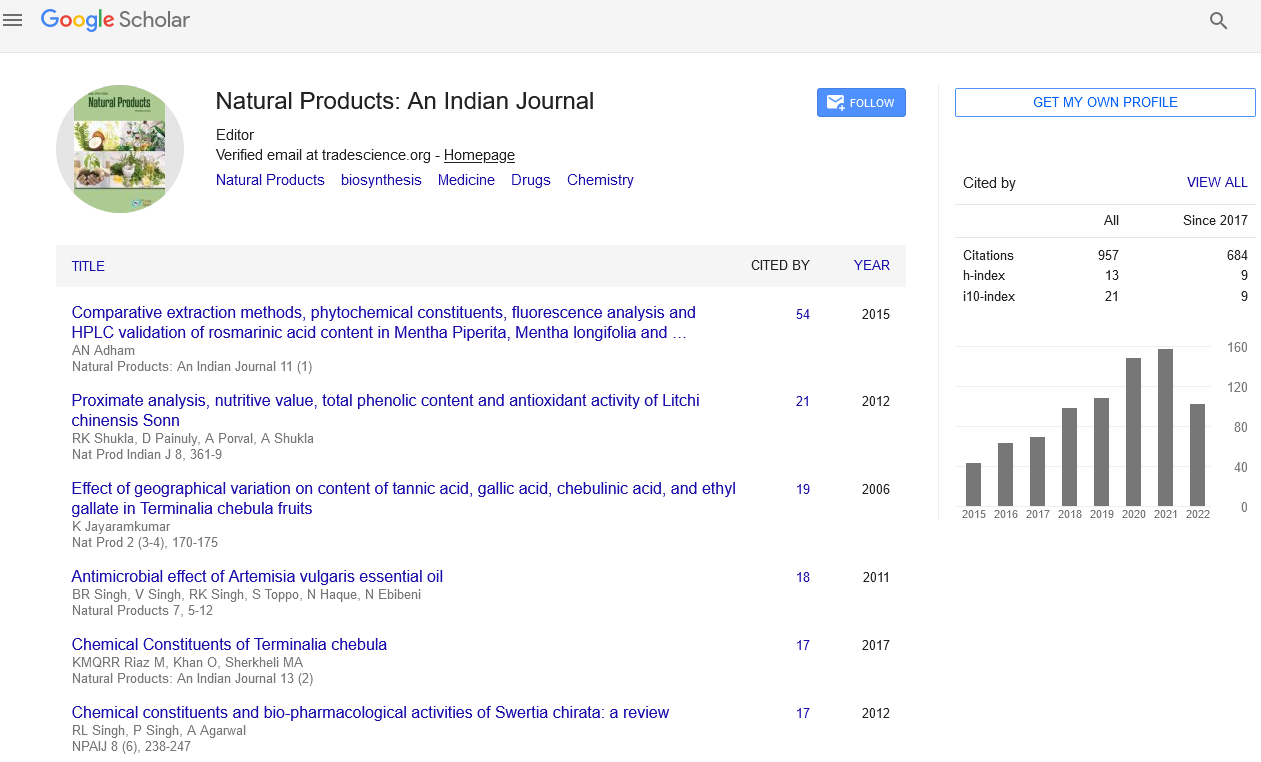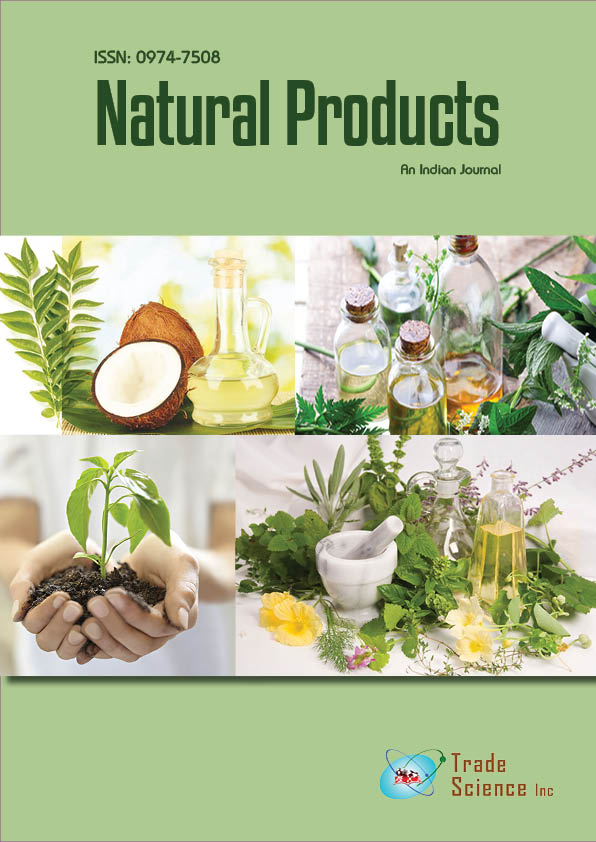Abstract
Nanodelivery systems of natural products: Development challenges and future prospect
Author(s): Deborah Quintanilha FalcãoSpices have been used since ancient times for a large number of purposes, such as medicinal, perfume, preservative and to confer aroma and flavour to food. Since ancient times, humans have widely used plant-based natural products as medicines against various diseases. Modern medicines are mainly derived from herbs on the basis of traditional knowledge and practices. Nearly, 25% of the major pharmaceutical compounds and their derivatives available today are obtained from natural resources. Natural compounds with different molecular backgrounds present a basis for the discovery of novel drugs. A recent trend in the natural product-based drug discovery has been the interest in designing synthetically amenable lead molecules, which mimic their counterpart’s chemistry. Natural products exhibit remarkable characteristics such as extraordinary chemical diversity, chemical and biological properties with macromolecular specificity and less toxicity. These make them favorable leads in the discovery of novel drugs. Further, computational studies have helped envisage molecular interactions of drugs and develop next-generation drug inventions such as target-based drug discovery and drug delivery. Despite several advantages, pharmaceutical companies are hesitant to invest more in natural product-based drug discovery and drug delivery systems and instead explore the available chemical compounds libraries to discover novel drugs. However, natural compounds are now being screened for treating several major diseases, including cancer, diabetes, cardiovascular, inflammatory, and microbial diseases. This is mainly because natural drugs possess unique advantages, such as lower toxicity and side effects, low-price, and good therapeutic potential. However, concerns associated with the biocompatibility, and toxicity of natural compounds presents a greater challenge of using them as medicine. Consequently, many natural compounds are not clearing the clinical trial phases because of these problems. The use of large sized materials in drug delivery poses major challenges, including in vivo instability, poor bioavailability, and poor solubility, poor absorption in the body, issues with target-specific delivery, and tonic effectiveness, and probable adverse effects of drugs. Therefore, using new drug delivery systems for targeting drugs to specific body parts could be an option that might solve these critical issues. Hence, nanotechnology plays a significant role in advanced medicine/drug formulations, targeting arena and their controlled drug release and delivery with immense success. They still play an important role in the traditional medicine as part of pharmaceutical preparations and several monographs are reported in the official pharmacopoeias. Extracts obtained from medicinal plants are generally complex mixtures of organic substances produced as plants secondary metabolites. Increased cases of opportunistic diseases emanating from side effects associated with synthetic drugs continue to necessitate incremental efforts in searching for effective biological substitutes with little or no side effects. Therefore, many studies have been performed with medicinal plants in order to overcome this problem, intending the discovery of new molecules of therapeutic interest. In this regard, the application of nanotechnology tends to make this more feasible due to the ideal small size of the particles, releasing the substance in the correct location and time. The choice of wall material and production method is therefore of paramount importance and combined with the ability to modify drug release, makes such nanosystems ideal candidates for therapeutical purposes presenting a wide range of applications. The nanotechnology combined to the natural products chemistry can bring an important contribution to the development of new delivery systems, promising candidates as new products with important perspective on health improvement. The aim of this work is to offer an overview on nanoencapsulation of natural products covering development challenges and future perspectives.

